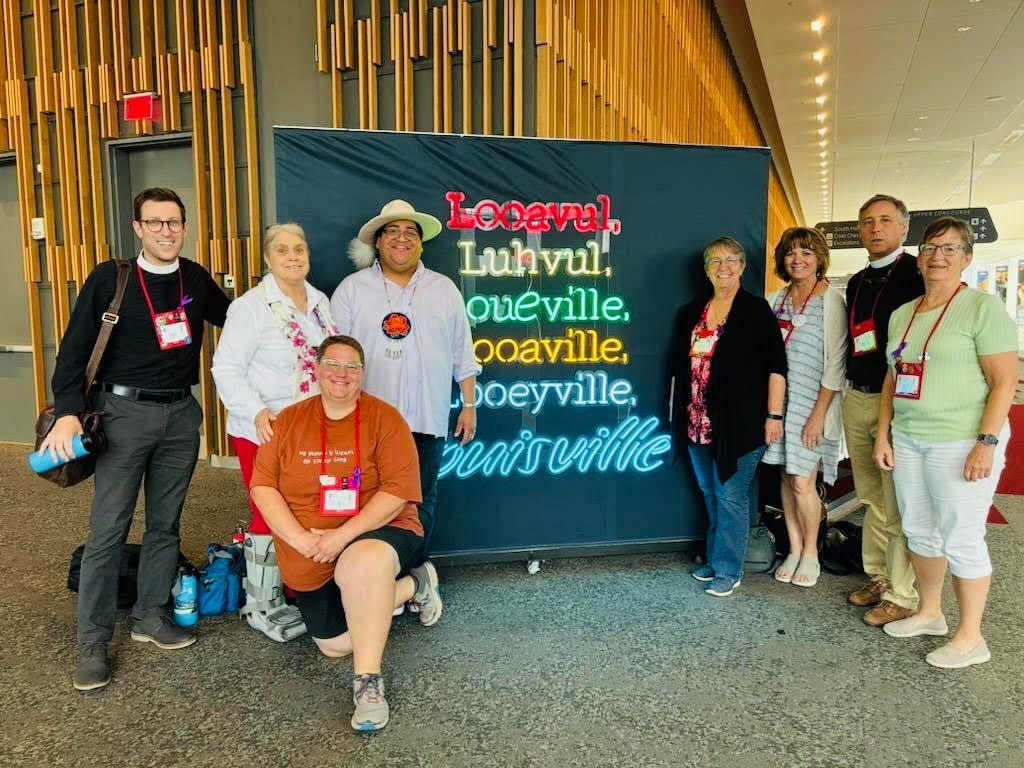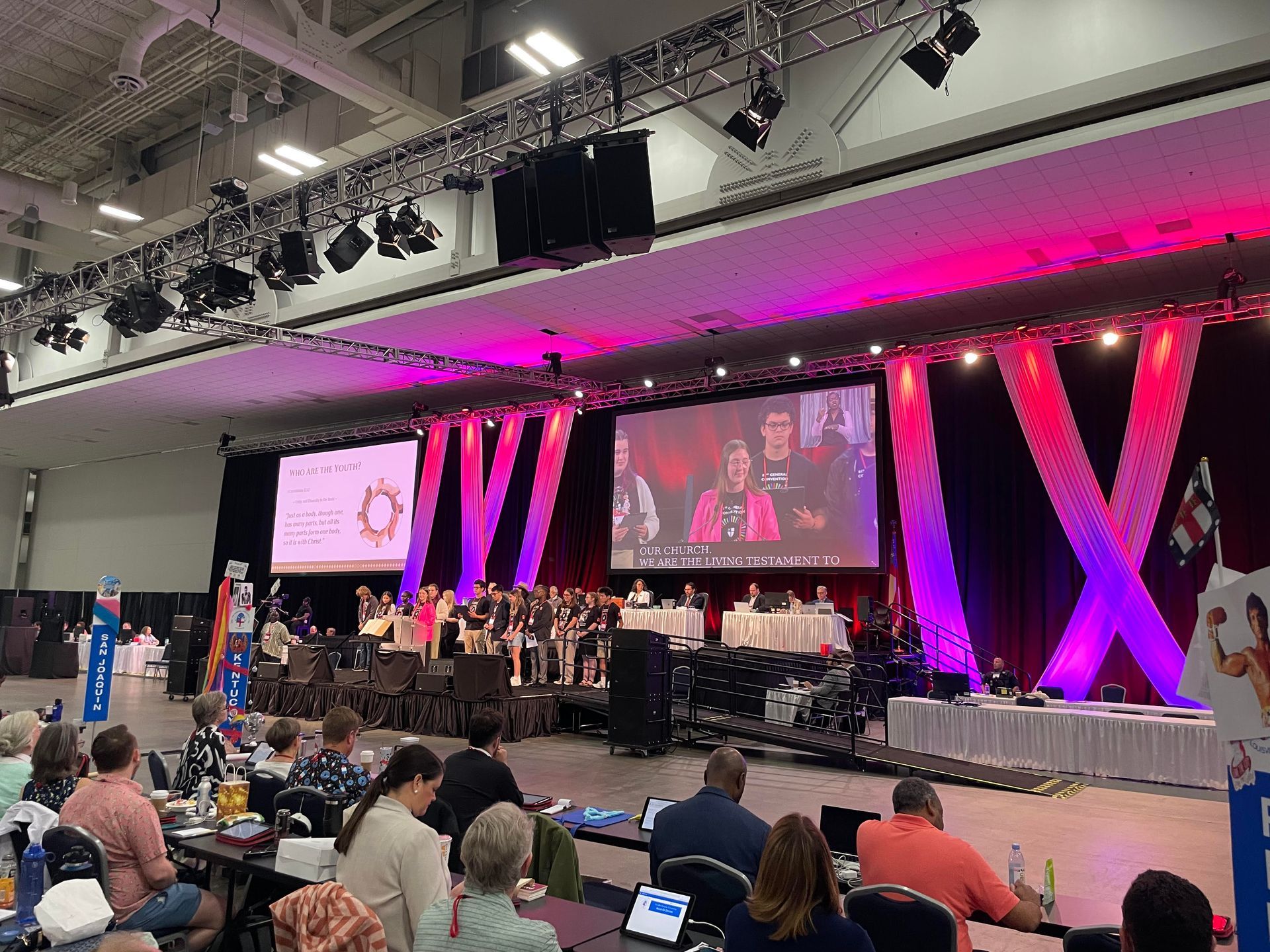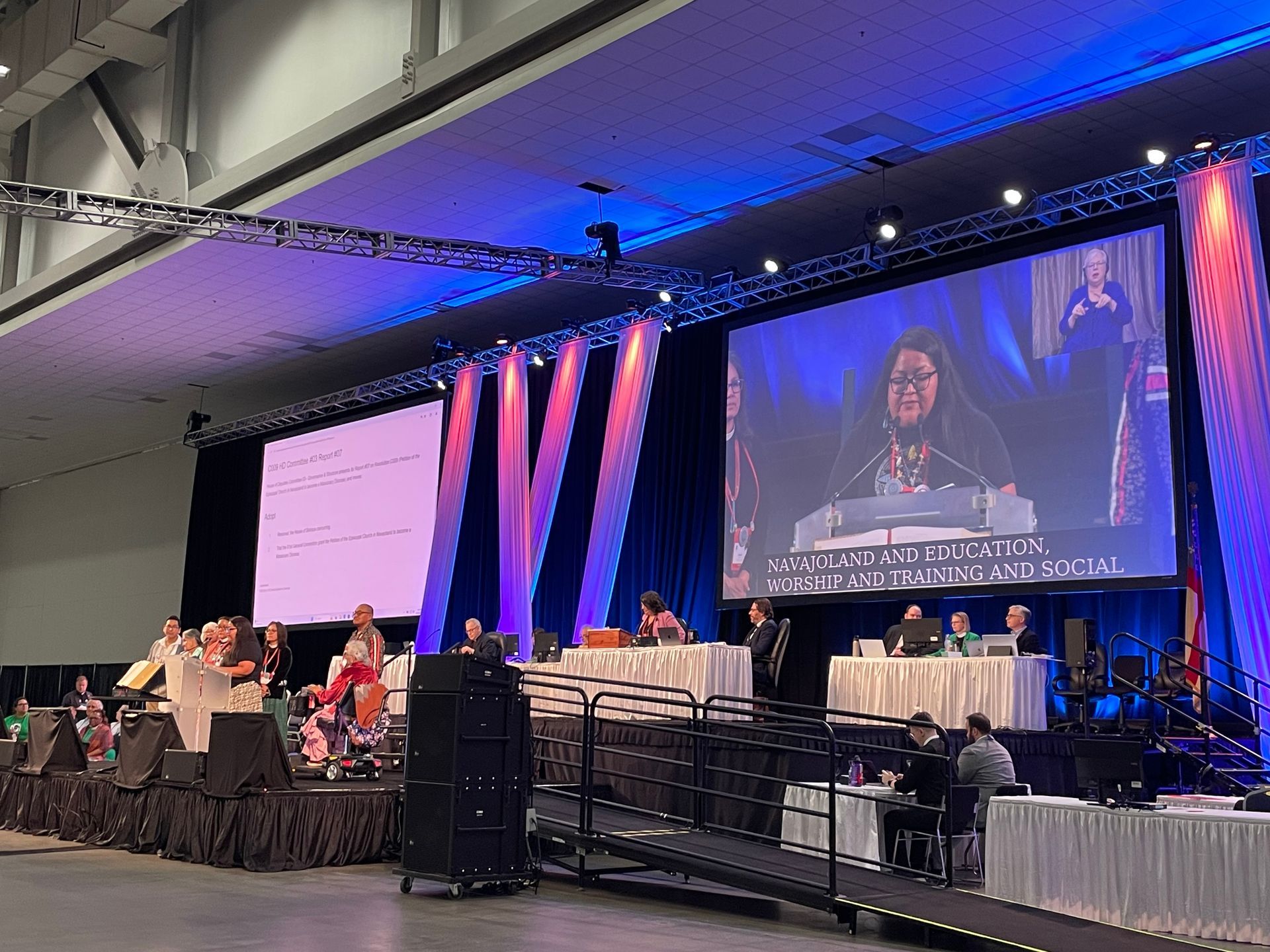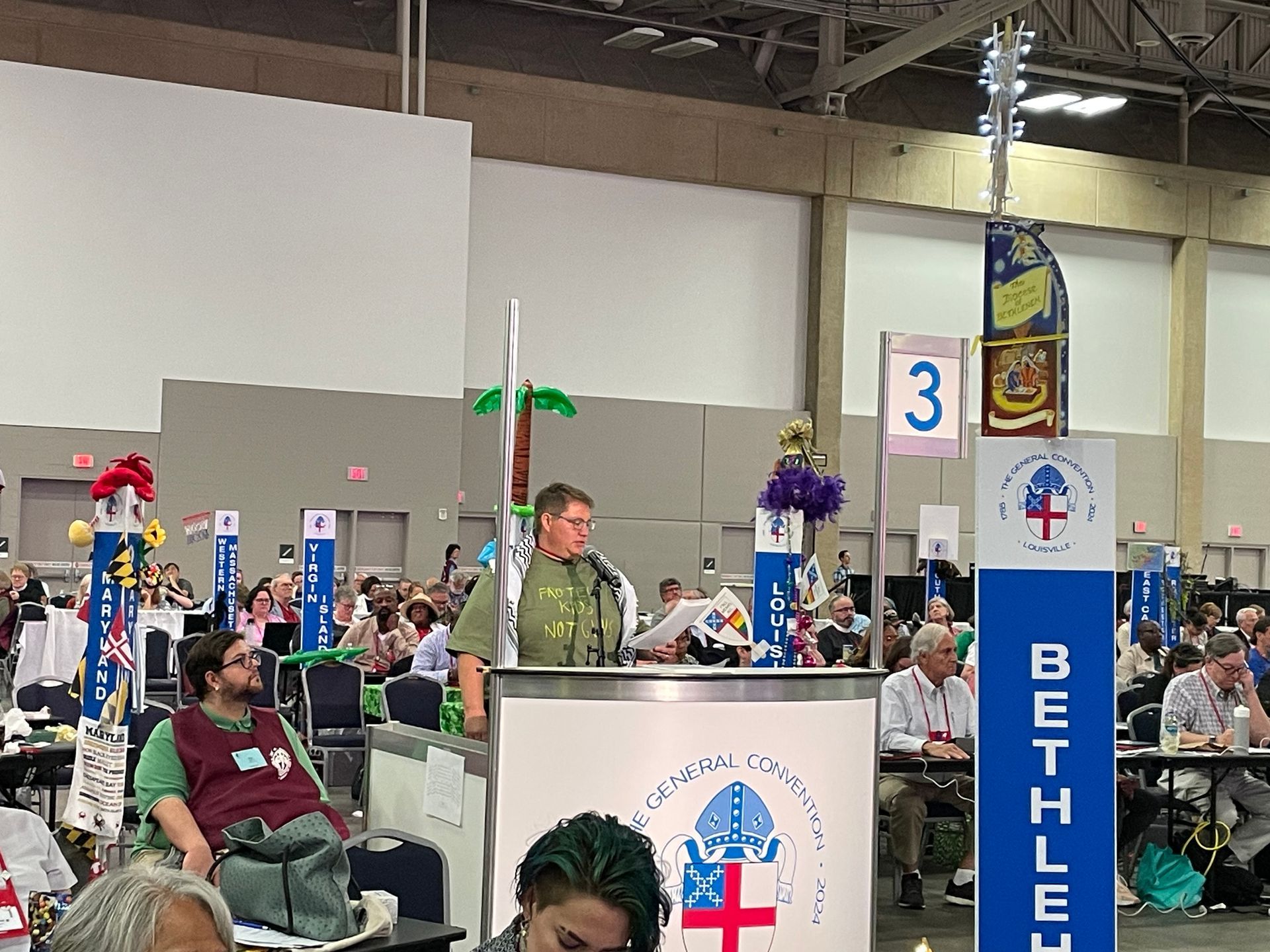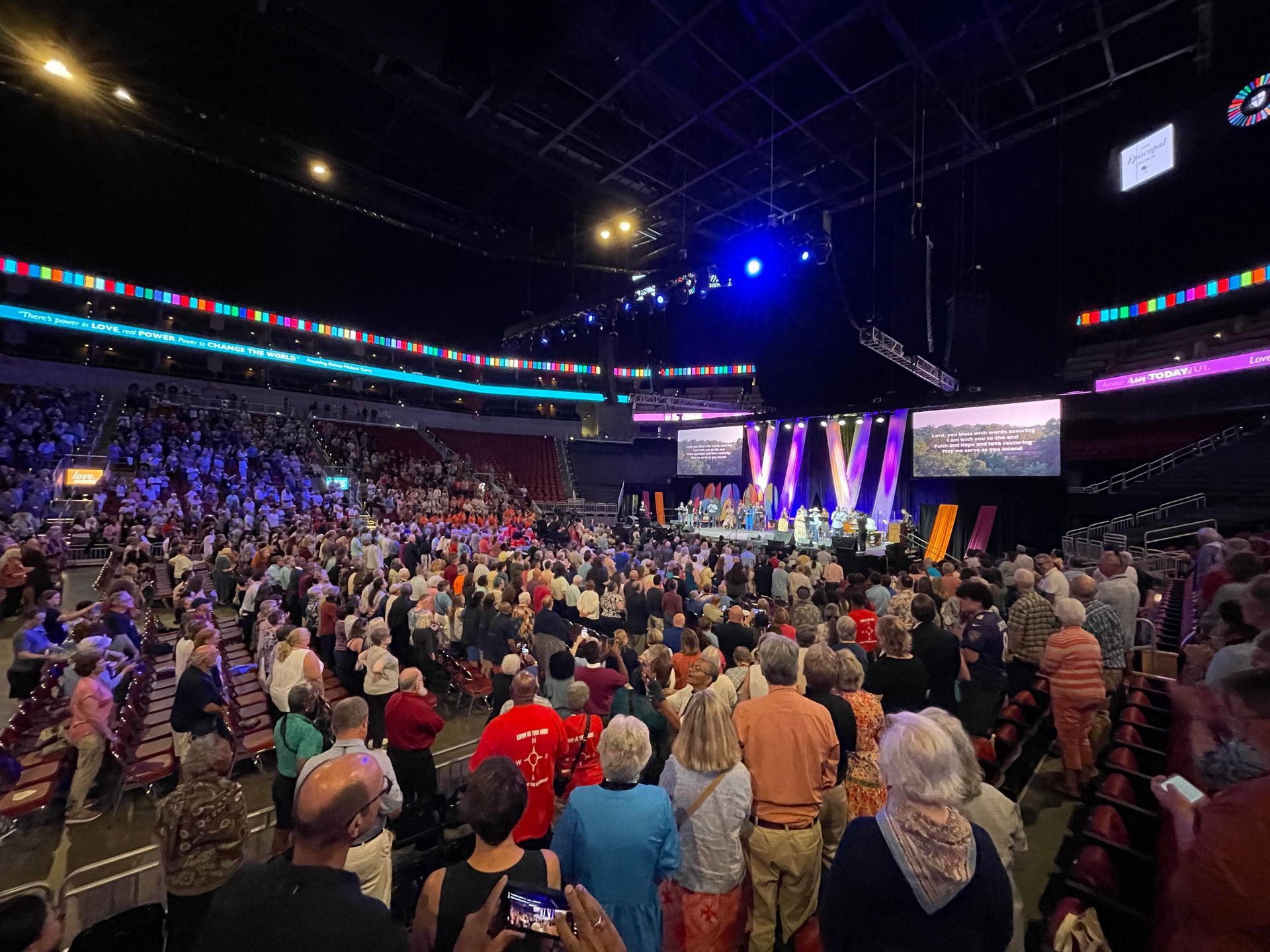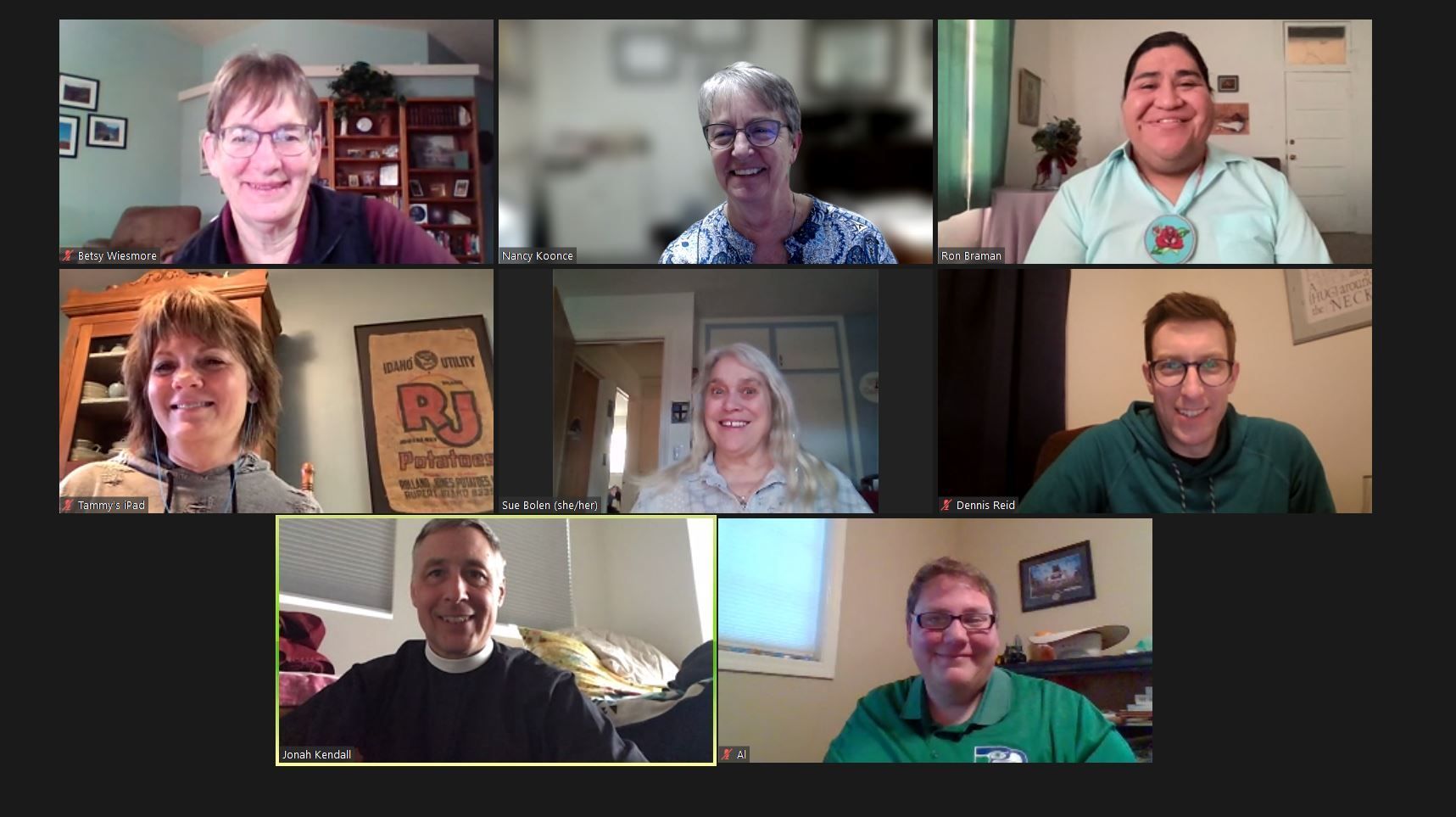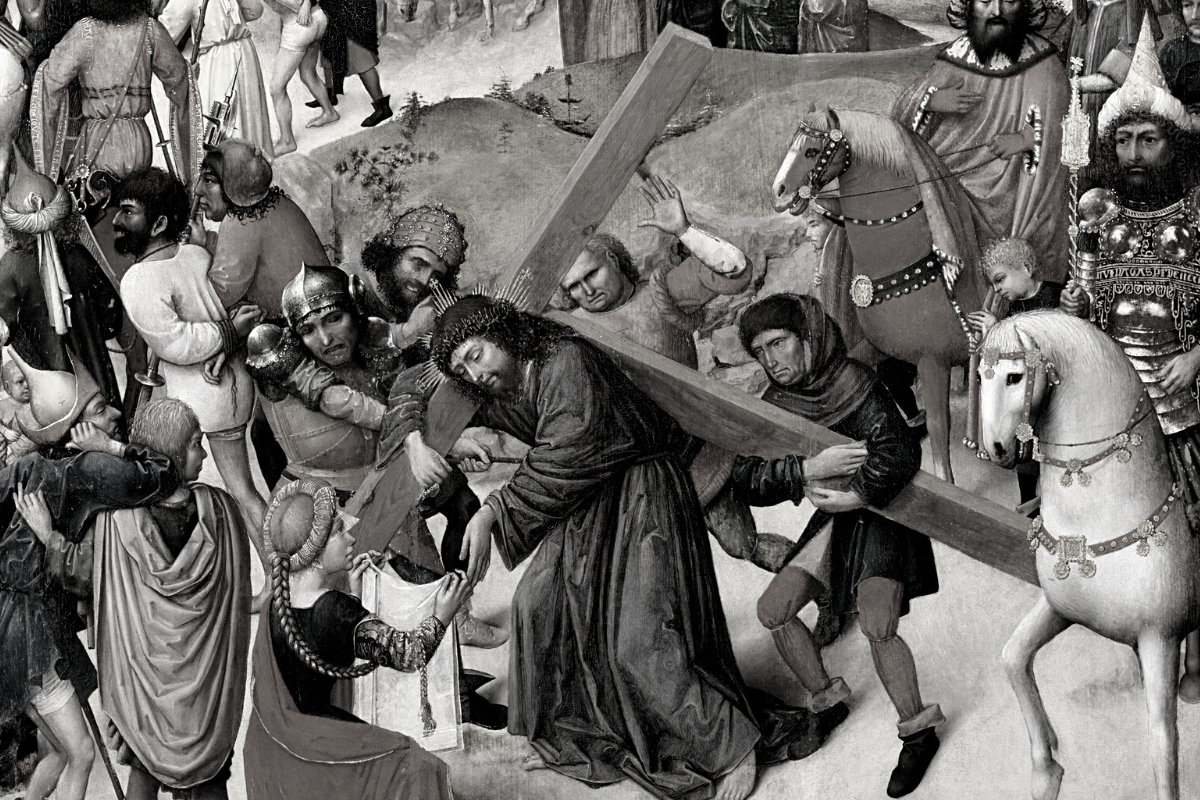We have a new Presiding Bishop-Elect! 6/26/24

The five nominees for the 28th Presiding Bishop of the Episcopal Church
“Courage is the authentic form taken by love.”
Sean Rowe quoting Thomas Merton
Dear friends,
We’re gonna do this with timestamps today because there’s a lot to get to – Presiding Bishop election, Prayer Book considerations, Israel/Palestine, and our first evening legislative session incoming. It might be prudent (and easier) to do this in real time!
11:07am
There’s a buzz in the air in the House of Deputies this morning – after months of curiosity, speculation, and prayers, the Presiding Bishop election is today! The bishops of our Church have processed through town to Louisville’s cathedral to begin their election process – the bishops elect the Presiding Bishop, and the deputies confirm the choice after. The first ballot won’t be known until after lunch, so the House of Deputies is now awaiting some news in the early to mid afternoon.
Friends, we only do this election every nine years. The tenure of any Presiding Bishop is like its own time capsule, a season for the Church and God’s people that often will have its own priorities and flavor, if you will. It is a demanding position that requires an incredible personal faith, a willingness to work with many leaders across the breadth of the Church, and a humility to lead and collaborate in discernment to hear God’s will for this Church and the world for the next decade.

Idaho's deputation voting on the floor of the House of Deputies
11:15am
We’ve now jumped into a myriad of elections for Church-wide positions and House of Deputies positions. We’re electing trustees for the Church Pension Group, lay and clergy members of the Episcopal Church’s Executive Council (sort of like the Church’s Vestry…kinda), members of the next Joint Nominating Committee for a Presiding Bishop, and some disciplinary committees related to the Title IV processes mentioned yesterday.
The Church Pension Group vote took a while; with 12 spots available and over 20 folks running, getting a majority of the vote for those elected took four ballots over the span of about 40 minutes.
12:08pm
Whoa! As we were almost ready to break for lunch, it was announced that a committee from the House of Bishops had arrived with a message. We weren’t expecting news on a potential election for a few more hours. The chaplain led the house in prayer: “Spirit of the living God, fall fresh on me,” we sang!
Aaaaaand false alarm. There has indeed been an election, but Committee 20, on the confirmation of the election, has to do…something with the result before we see it. They will meet and then announce to the House of Deputies this afternoon. We wait in hope – the Church holds its breath in prayer and anticipation.
1:43pm
Tacos have been had for lunch! We’re now back in the House of Deputies looking at tomorrow’s consent calendar to stay ahead of the game. And we’re still waiting for the PB election. We come back in session in 15 minutes – news soon!
2:04pm
Committee 20 is back, and so is the House of Deputies! Great expectation is in the air. President Julia Ayala Harris brings us back into session, and the chaplain prayed over the House. Thank God for prayer: “May everything we do be for your honor and glory.” Amen, friends.
2:10pm
The Committee on Dispatch moves to suspend the rules of the House that we may hear the report of the election of the Presiding Bishop. Here we go!
The House of Bishops have elected the Rt. Rev. Sean W. Rowe as the next Presiding Bishop of the Episcopal Church!

Presiding Bishop-Elect Sean Rowe. Photo credit Randall Gornowich.
Presiding Bishop-Elect Rowe was elected on the first ballot. 82 votes were needed to elect of the 158 ballots cast. Results as follows:
The Rt. Rev Scott Barker 24
The Rt. Rev DeDe Duncan-Probe 9
The Rt. Rev. Daniel Guttierrez 17
The Rt. Rev. Sean W. Rowe 89
The Rt. Rev. Robert Wright 19
The House of Deputies affirmed the election via electronic vote by a count of 778 to 43. We have a new Presiding Bishop-Elect! A loud and boisterous standing ovation was celebrated, and a small envoy from the House of Deputies was sent to the cathedral to announce the confirmation to the bishops.
The Church was blessed to have five exemplary bishops stand for this election. Each have gifts for ministry, leadership, and vision, and for the remaining four nominees, their deep faith will continue to be a blessing to their dioceses. I trust our Church would have been in good hands with any outcome.
A point of personal privilege: Sean Rowe was my bishop for a season in the Diocese of Bethlehem, and I delight for our Church at his election. Sean has a gregarious, warm personality, a particular gift for liturgy and proclaiming the Word, and is well-versed in the adaptive leadership and vision that will serve the Church well for the next nine years. Congratulations, Presiding Bishop-Elect Rowe!
2:23pm
After all the excitement, we still have work to do! We now continue our elections into the afternoon.
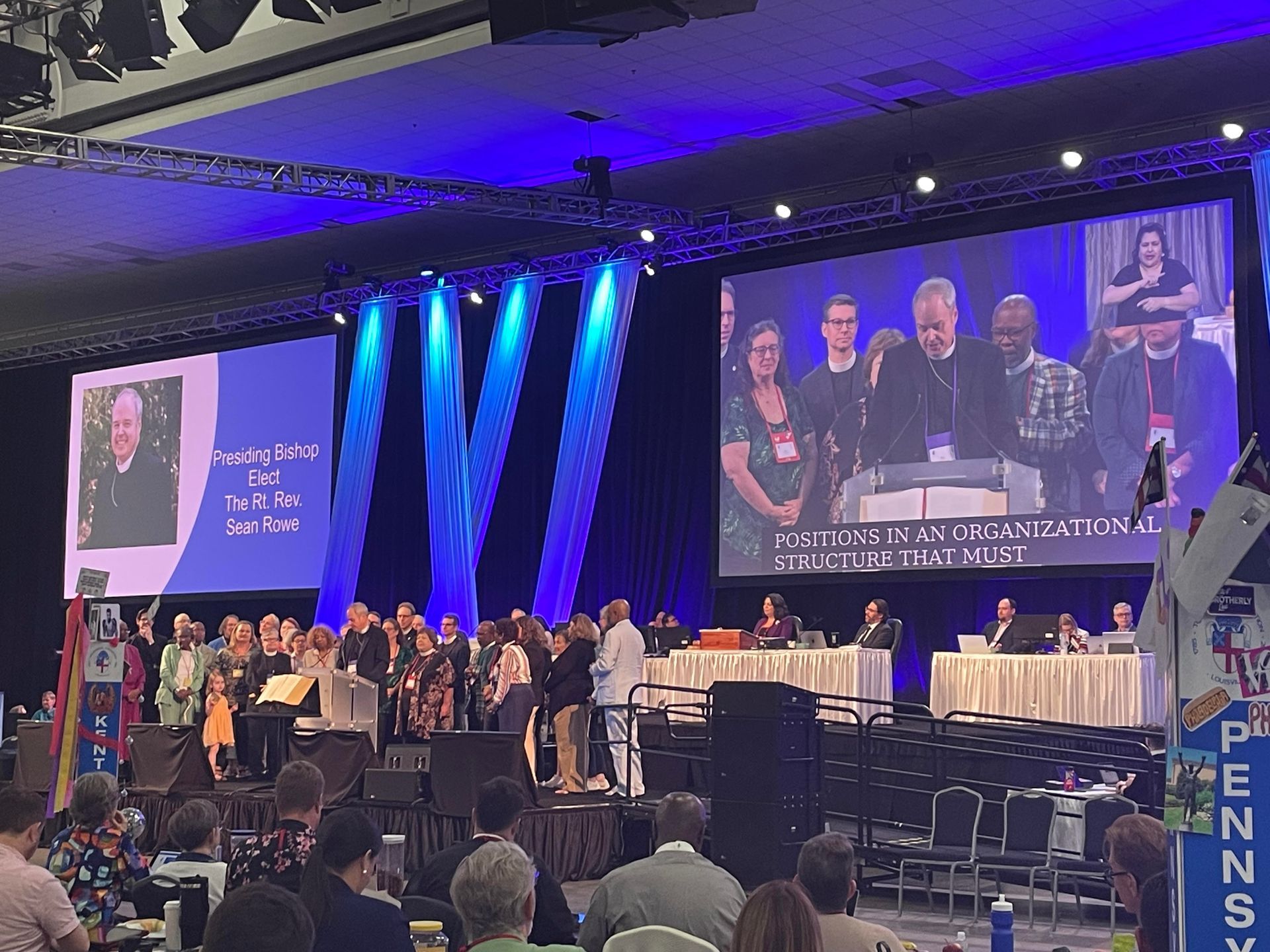
3:08pm
The Presiding Bishop-Elect is in the House! After a raucous ovation, Presiding Bishop Michael Curry joyfully introduced Sean Rowe who took the stage surrounded by the deputations from Northwestern PA and Western New York.
“I’m grateful to all of who have participated in this long discernment process,” Rowe began. He offered his gratitude for the “companionship and council” from the other four nominees and gave thanks that the five of them “made this journey in solidarity with the love of this Church in mind.”
Rowe described the next nine years as “critical” and that it wasn’t too strong to describe the state of the Church as an “existential crisis.” However, it was not because of despair or because the Church was dying but rather because “the world around us has changed and is changing.” “God is calling us ever more deeply into the unknown,” Rowe remarked.
Rowe described his upbringing near Erie, Pennsylvania as a time in which he saw the things he loved go away: “I watched everything I had known evaporate” due to economic instability and unraveling steel industries. And yet, with a hopeful tone, he described the recent history of his dioceses as “bucking the trend of downturn for the sake of the Gospel,” and that the Church there has been called into experimentation through an imperative to change and walk into God’s faithful future.
Looking ahead, he asked the House and the Church to consider that it’s time to reorient churchwide resources and staff to support dioceses and congregations on the ground level of ministry and to build on what is already being done better at that level than could be done at the highest level of the Episcopal Church.
He also asked us to remember that we are the beloved community in Christ, that we can disagree without tearing each other apart. He encouraged us strongly to use the anger we feel at injustice “not to turn against one another but to bring God’s realm here,” a reorientation of our hearts and minds that only matters “if we do it for the Gospel of Jesus Christ.”
Rowe thanked the House of Deputies for rejecting the lowering of the assessment for the triennium, saying they’re worth maintaining “for now;” “let’s see what we can do together and then reevaluate.”
And he asked the House to consider this interim time before he begins his work officially in November as a time of “relational jubilee”: to let go of anger, resentment, and grudges seen in the Church from the last several years and the time of the pandemic. Sometimes, he remarked, “our behavior hasn’t been a witness to the Gospel of Jesus Christ.” But he was very hopeful that we can move forward together in hope, seeking forgiveness, and living into a fresh start together. Quoting Thomas Merton at the end of his address, Rowe reminded us that we will need courage, faith, and hope to make this walk together: “Courage is the authentic form taken by love.” The floor of the House of Deputies, with our bishops visiting with permission, interrupted Rowe’s speech on a handful of occasions to rejoice with applause and affirmation of his strong words – there is a great hope on the floor of this House, and I’m encouraged by this stirring of the Holy Spirit in our midst!
3:54pm
After a lengthy recess (and naturally, more coffee!), it’s time for a presentation from Episcopal Camps and Conference Centers! The Hero of Camping Ministry Award was presented to Bronwyn Skov for her remarkable support and leadership amongst camping ministries in Minnesota.
And now, we’re back to elections, this time for the Joint Nominating Committee for the Election of the Presiding Bishop – yes, we already have to do that for nine years from now!
4:33pm
Elections have been finished, and we now move onto the Consent Calendar – if you’re not familiar, each legislative session has a batch of resolutions that are expected either to pass or fail according to the proposing committee’s recommendation with little disagreement, discussion, or fanfare. Resolutions may be pulled off the Consent Calendar to be considered on the floor of the House at the request of at least three individual deputies, but there’s virtually no way we’d get through hundreds of resolutions in six days of legislative sessions without it. Our deputation has met each day to review the next session’s Consent Calendar to make sure we don’t want to pull anything onto the floor – so far, we haven’t felt the need.
4:38pm and into Early Evening
We’re about to consider resolutions concerning the conflict between Israel and Palestine. The chaplain started us with prayer: “Grant us strength and peace and hope, Holy Spirit. Surround us with compassion.”
To say these are challenging and complex topics is a massive understatement. The committee in charge of forming these resolutions had the unenviable job of crafting the Episcopal Church’s potential stances, responses, and even theological reflections upon this crisis. The committee chair described the nature of their work as a concerted effort to look for concrete ways for our Church to act upon this crisis, to spark a new urgency to use our voices lest our silence leave us complicit in ongoing violence, to lament and pray for the hope of a ceasefire and peace, and to carefully navigate our response as a Church.
It's a laudable but extremely difficult goal.
The most pointed debate of the day revolved around some of the vocabulary of the three resolutions. Are the words apartheid and genocide accurate to the conflict, or are they purposefully incendiary? The House of Bishops voted to remove direct labeling of this crisis as such; the House of Deputies and the legislative committee had to respond to the change. Given the testimony we heard for hours today, I was persuaded that perhaps the exact answer, in a way, doesn’t matter as much as a statement from a united Church, both its Deputies and Bishops, matters. This is especially true because time is a factor – it takes time in parliamentary procedure to recraft language and submit amended resolutions to our parallel house. Were the two houses continually committed only to their own versions of these resolutions, we would run the risk of not saying anything at all by the end of GC81 on Saturday.
There is no debate that this Church cries out in lament and anger like the prophets of old against the needless loss of life in this crisis. There is no debate that this Church is seeking a way to act and speak in motivation from the baptismal vows we have made to respect the dignity of every human being, especially in this moment for the people who are suffering and dying. There is no debate that this Church is trying to do what it is called to do at this General Convention, and the difficulty in coming together across conflicted opinions is both a blessing and constraint of our democratic process. In the end, the House of Deputies voted this night to agree with the House of Bishop’s wording on D056 Calling for a Ceasefire in Gaza, which while stopping short of labeling this crisis as an act of genocide, still strongly decries the October 7th 2023 terrorist attack by Hamas, laments the United States’ complicity in the crisis, calls on the Church to offer days of fasting, prayer, and mourning for the lives lost in Israel and Palestine, and urges the members of this Church to contact their elected government officials in Congress to ask for “a comprehensive, equitable, and immediate ceasefire in Gaza.”
I did make a brief statement on the floor before one of the votes. As we’ve seen in many resolutions, committees can request an amount of money for the work they’re proposing – in some instances, it’s a big number, like $750k for the proposed hymnal supplement. None of the resolutions regarding aid and help to Palestinians committed dollars from the Episcopal Church’s budget. I rose to speak against one of the resolutions “not because of the substance of our debate but because of the measure of our response.” For as strong as our language is in outcry against injustice, I was very disappointed that our only financial reality was a mere “invitation to philanthropy.”
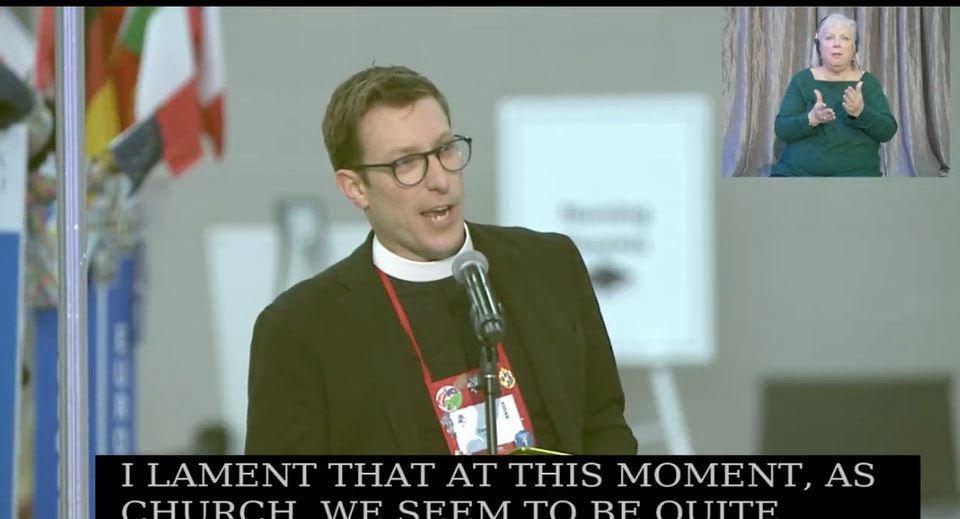
5:49
We’re in recess til 7pm. Deputies are scattering out of the House to find dinner and return. It’s turning into a long day.
6:56pm
As we’re slowly getting back into the House, each deputation has been met with what can only be described as “materials for a light and dance party” at their tables. Interestingly, the first Presiding Bishop in 1785, William White, was a noted dubstep and underground dance music enthusiast.
Also, that last sentence is false. Just checking if you’re still paying attention.
What’s not false is the “Episco Disco” vibe that we’re enjoying at the moment that just might help us power through two night hours of complex resolutions. Glow sticks, light up glasses, and even glowing bunny ears are scattered throughout the House – who says parliamentary procedure can’t be fun and spicy?

7:14pm
After the next batch of Consent Calendar resolutions were approved, the House moved along to continue with the last resolution concerning Israel and Palestine. Editorial Note: I’ve written slightly out of order in my recap and combined some of the action in the earlier paragraphs. This vote was the one affirming the bishops’ choice to remove the word genocide from the last resolution. It was not an easy choice, but in the end, the House of Deputies did indeed vote to concur so that we could make sure we had some sort of unified statement.
8:06pm
The last big event of the day is here. We’re now considering A072 which would completely rewrite Article X of our Constitution and redefine the identity of The Book of Common Prayer.
The call for prayer book revision has been heard for probably more than a decade now. Our 1979 book has served the Church well, I believe – and, we have a plethora of liturgical resources that have been approved by General Convention and/or published for use in congregations that have either been for trial use, temporary use, or permanent use. Some examples of this reality would be the Enriching Our Worship series, resources like The Book of Occasional Services, and of recent importance, the rites approved for marriage equality and same-sex marriage. There is a lot of Episcopal liturgy that cannot be found in the current prayer book, and whether we redefine what it means for the book to be the book or start an intentional process of writing the next book seems to be the choice before us as a Church.
For a long time, I resisted the idea of redefining the definition of the prayer book. It seems odd to be able to hand someone a copy of The Book of Common Prayer with the caveat of also needing to say “this actually isn’t really everything, there’s more.” But, that’s kind of already the reality of our Church. We have approved rites for the 1979 Eucharistic Prayers with updated language that aren’t in any printed book. At least at St. Stephen’s, we print the liturgy in bulletins and can be adaptive to other approved liturgies from outside resources that also won’t be found in our beloved red book. And the truth of the matter is, we haven’t looked forward to prayer book revision – we’ve already begun. Perhaps it’s just a little different now than the way it was done in the 1970s, and that’s ok.
And so we debated. Once again, the debate was around the idea of holding fast to a single book which contains the primary liturgy and theology of this Church or allowing our common prayer to be carefully considered and broadened to include every authorized text as approved by the Church through the vehicle of successive General Conventions. There was impassioned testimony to reject this resolution on what I would describe as the somewhat disingenuous belief that we could no longer hand people the 1979 BCP for use – that just isn’t true. The 1979 isn’t going anywhere. It will still be cherished and used in the overwhelming majority of Episcopal congregations. Instead, we’re expanding our possibilities while still taking a “measured approach” to careful revision. Ever since I was in seminary, we’ve talked about the possibility of the 2035 prayer book (or some year in the 2030s). It might be that there will never be a 2035 BCP nor any future BCP with a particular year attached to it; however, there may be texts that would have been in a future BCP that will be authorized as individual texts that are then folded into what we consider the entirety of the BCP.
We voted by orders and it passed very easily, about 90% to 10%. This is quite the change for our Church. It will take some time for us to live into the reality we’ve just created and perhaps even more time to fully understand it. But I’m reminded that the Spirit does not always nudge us towards comfortable, well-known places. It’s a new era for Episcopal liturgy.
Mercifully, this day is over. We’ve adjourned until 9am Morning Prayer in the House of Deputies. It’s been a marvelous day for the Church with the election of our 28th Presiding Bishop! Time for some rest – see you in the morning!
Grace to you and peace,
Dennis
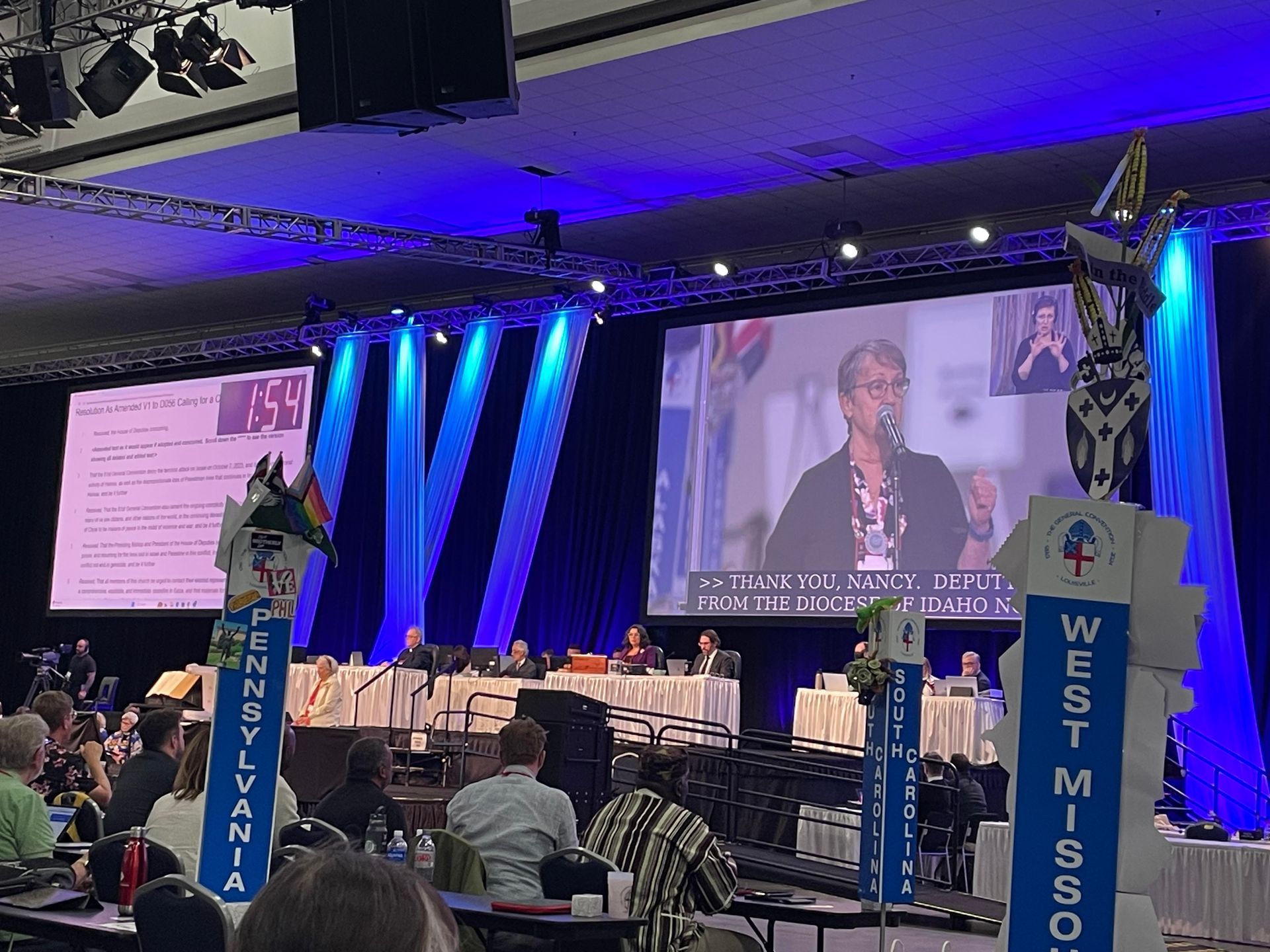
Nancy Koonce with a point of order!

